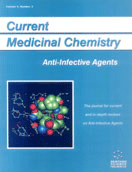Abstract
The increasing occurrence of resistance to antibiotics among major respiratory pathogens has become a public health threat calling for new therapeutics. β-1,3-D-glucan is a polyglucose from yeast and moulds with known anti-infection and anti-tumor effects in rodent models. Recently, biologically active polysaccharides have also been isolated from Plantago major L., which has traditionally been used for wound healing. The aim of the current review is to examine whether stimulation of the hosts immune system with such immuno-modulators c ould help the host c omba t inf e ctions with potentia lly har mf ul re spira tor y pa thoge ns. Studie s w e re performed with mice stimulated with β-1,3-glucan or P. major polysaccharide and infected either with the intracellular pathogen Mycobacterium bovis, BCG, or the extracellular pathogen Streptococcus pneumoniae. In addition, the effect of the agents on M. tuberculosis-infected macrophages was examined in vitro. It was found that β-glucans protected against M. bovis, BCG and S. pneumoniae infections in vivo both when injected before and after challenge. Moreover, β-glucans reduced growth of M. tuberculosis in macrophage cultures. P. major L. pectin polysaccharide did also protect against S. pneumoniae infection in mice. The anti-infective action of P. major L. pectin polysaccharide in mice was shown to be due to stimulation of the innate immune system, which is also the mechanism for the observed β-glucan effect. Thus, in the future, biologically active polysaccharides or other substances that stimulate the innate immune system, may prove to be useful alternative compounds in the fight against respiratory tract and other infections caused by multi-drug resistant pathogens.
Keywords: glucan, p. major, immuno-modulation, macrophages, anti-infection effect, mycobacteria, s. pneumoniae
 3
3

